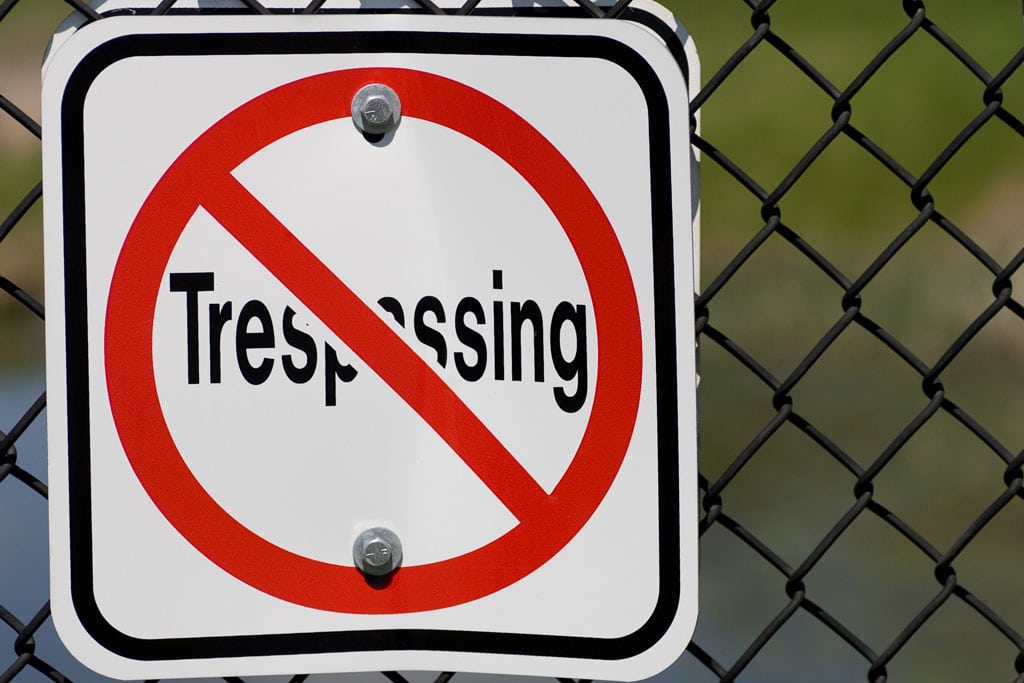
Criminal Trespassing is a Misdemeanor in Georgia, but…
Criminal trespass is a misdemeanor offense in Georgia but can carry serious personal and professional consequences for those who are found guilty. Unfortunately, many people are woefully under-informed about how the law defines and treats criminal trespass. Understanding where the law stands is a critical first step in constructing a strong defense against criminal trespass charges.
There are 3 actions defined by Georgia law that constitute criminal trespass.
Most people understand ‘trespassing’ to be entering another person’s property without consent. From the perspective of the law, ‘property’ includes a private residence, other forms of real estate, land, and vehicles including cars, aircraft, and watercraft.
Permission to enter a property must be obtained from the lawful property owner, occupant (a renter or leaseholder, for example), or the owner’s authorized representative. Absent this permission, the law considers entrance upon the property to be trespass.
Minor occupants cannot give permission to lawfully enter without the consent of a parent or guardian. Permission may be revoked at any time, and those who remain on the property after receiving a notification to depart are trespassing.
Unauthorized entrance also includes entering into another person’s property for an unlawful purpose. So, for example, with the intent to commit burglary, robbery, assault, or other illegal acts. It’s important to note that a prosecutor must be able to prove that these actions were intentional to qualify as criminal trespass.
Damage to or Interference with Another’s Property
Under Georgia law, damage to another person’s property equivalent to $500 or less is considered criminal trespass. Additionally, knowingly and maliciously interfering with a property owner’s possessions or use of their property qualifies as criminal trespass. As with unauthorized entrance, a prosecutor must be able to prove that this damage or interference actually occurred for criminal charges to stick.
OF NOTE: theoretically, you can be criminally charged for damage to property in your own home, if another person can claim legal ownership or possession of that property.
Defacing Military Memorials
Georgia law prohibits defacement, mutilation, or defilement of certain military-related memorials if they are privately owned or located on private land. This includes graves, monuments, plaques, markers, and other memorials honoring military personnel and service. Violators can be charged under the criminal trespass law.
Penalties and Legal Defense
Under Georgia law, any misdemeanor offense is punishable by a fine up to $1,000, imprisonment up to one year, or both. This fine does not include other residual costs, such as court fees or lost income if imprisoned. Additionally, even a misdemeanor conviction stays on your criminal record for life and will come up in background checks, potentially affecting future housing and job prospects.
Have You Been Arrested for Criminal Trespassing?
Criminal trespass cases are often much more complicated than they first appear, and a qualified criminal defense attorney can help guide you through the process and ensure your rights are protected. The team at Schnipper Law P.C. draws on extensive experience and has a proven track record of assisting clients in and around the greater Atlanta area.
Call (404) 983-6051 today to schedule a free consultation.


